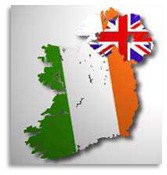The Listowel Writer’s Week has announced the 42nd annual event will take place May 29 to June 2, 2013. Here’s what Irish President Michael D. Higgins says about the event:
“Here in Listowel every year the Nobel Laureate and bestselling author is celebrated, the emerging voice of the poet reading in public for the first time is applauded, the draft novels and stories are discussed and encouraged. Here the writer gets to realise that he is part of a group, part of a family composed of creative individuals interested in and anxious to support each other’s gift and talent.”
My wife and I enjoyed this year’s literary festival, especially a reading by poet Paul Durcan. Afterward, I stood in line for nearly an hour to get a book of his poems autographed for her while she and my Irish cousins enjoyed their pints in the bar of the Listowel Arms Hotel.
That’s love. That’s Ireland.


